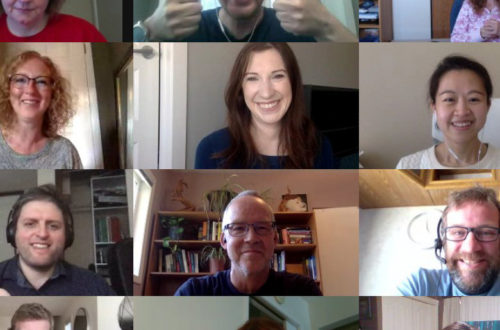From the Editor
Is Mathematics Important? You Bet It Is!
Everyone depends on the success of Mathematics education, everyone is hurt when it fails. Mathematics must become a pump rather than a filter in the pipeline of education.
Everybody Counts, Mathematical Sciences Education Board, 1989
Mathematics is a key to leadership in our information-based technological society. Workers at all levels of the economy need to be able to think mat:1ematically, analyze data and find solutions to unconventional problems. Yet, throughout Canada, students leave school without the mathematical knowledge they need to be personally and professionally competent in today’s world.
It should come as no surprise that the majority of students in our schools do not excel in mathematics. Many graduate with minimal levels of Mathematics education. Also, many of our elementary teachers teaching mathematics have had little mathematics education at the university level.
Students who graduate from our schools, having met only minimal mathematics requirements, do not know enough mathematics to survive in the twenty-first century. Our students should be made aware that they need to know more and that it is possible for them to learn more. As educators our first concern must be the improvement of students’ performance in mathematics.
To achieve this goal we must have teachers who are well prepared and dedicated and supervisors who provide support and guidance. Our Mathematics curriculun and instruction must reflect the changed needs of our technological al!,e, Parents must be helped and encouraged to become aware arid will ihg partners ‘in this emphasis on mathematics achievement.
Another special concern is greater achievement in mathematics for the growing number of. students in our schools with limited proficiency in- English.
These changes will take time. Individual school systems, schools and teachers can begin the process of reform by emphasizing the importance of mathematics education and creating standards for student performance in mathematics. We will need to provide increased support to allow all students to meet these standards.
For students to meet the new graduation requirements, mathematics curriculum and instruction in the early grades must be enhanced. For all students to benefit from a curriculum relevant to the twenty-first century, we must improve the mathematics education offered to students with limited English. Action in these areas will help improve the mathematics education of the nation.
Recommendations for Action
1. Raise standards and expectations for student performance. Satisfactory completion of mathematics courses by all students in all grades should be required.
2. Improve supervision of mathematics instruction at the elementary and middle school levels. Establish a mathematics specialist position in elementary schools. Establish consistent policies and procedures for student articulation between schools.
3. Increase the professionalism of mathematics educators, by creating mathematics specialists in elementary schools (in the same way as any schools have education and music specialists), as mentioned above. It is unrealistic to expect all elementary teachers to wish, and be competent, to teach children mathematics. Teachers who do want to teach mathematics, however, should be given specialist training in this field. Unfortunately, there seems to be a trend within education departments and school systems to have elementary teachers teach all the core subjects.
4. Base mathematics curriculum objectives and instructional tools at all levels on the Curriculum and Evaluation Standards for School Mathematics, NCTM, 1989. Redesign all mathematics tests to include performance as well as paper-and-pencil components.
5. Expand parents’ involvement in mathematics education.
6. Enhance the mathematics achievement of students with limited proficiency in English.
7. Seek private support for mathematics initiatives.
8. Investigate critical areas further.
9. Encourage schools to make improving mathematics education a priority at the local level. Make staff development available to all teachers in the schools. Provide more opportunity and encouragement for teachers to attend professional conferences and meetings.
This editorial was adapted from an article by Phyliss Pullman, in UFT Math, Vol. Ill, No. 1, September 1990.
Art Jorgensen
From the Editor
Art Jorgensen
Letter to the Editor
Bryan Quinn
delta-K
NCTM Conference a Success!
George Ditto
Upcoming Conferences
Math Fact
The 100 000 001st prime is 2038074751
Math Monographs
Problem Solving Monograph for Secondary Students
Monographs Published by MCATA
Mathumor
Manipulative “Junk”
Maureen E. Farr
Leaves
Children learn through play
The Right Triangle Rap
Cy Adler
History of Math Word Search
Integrating Mathematics?
Computer Integration Guide: A Guide for Mathematics, Grades 4 – 9
Teaching and Learning Mathematics in the 1990s
Thomas J. Cooney
MCATA Executive 1990/91



